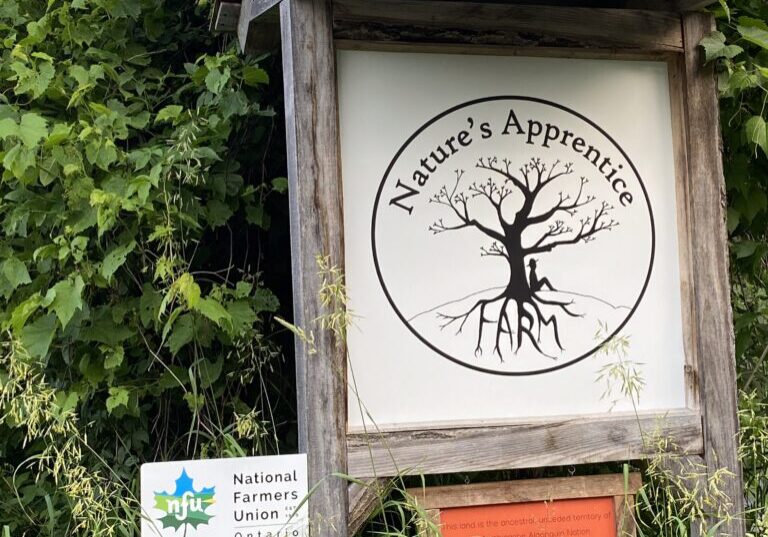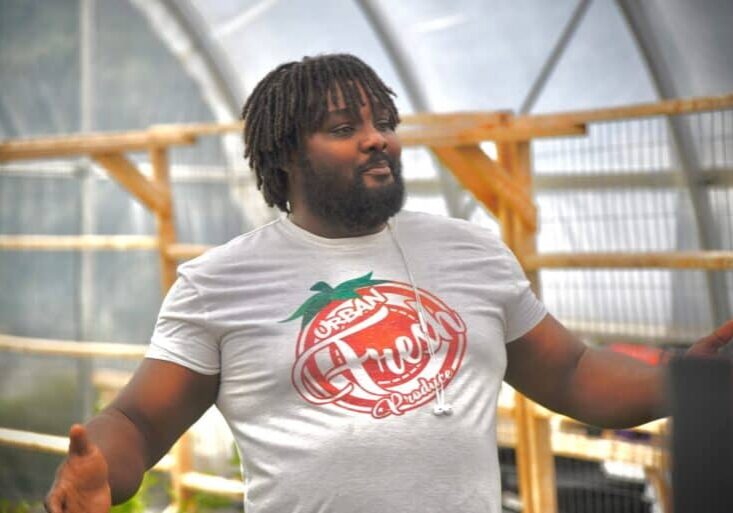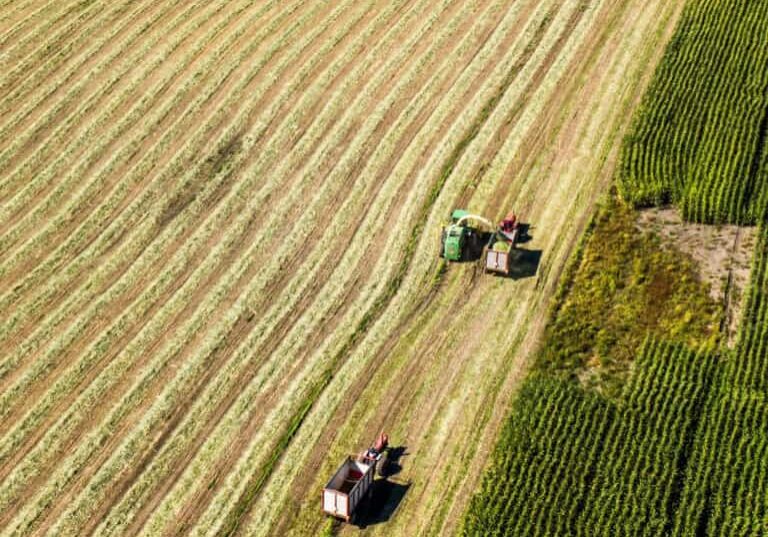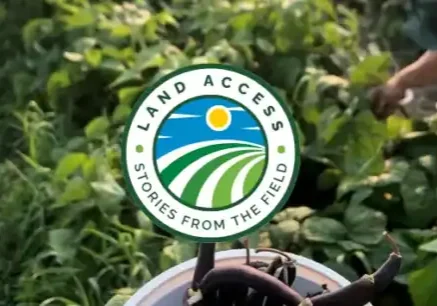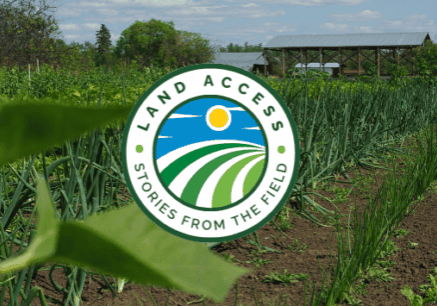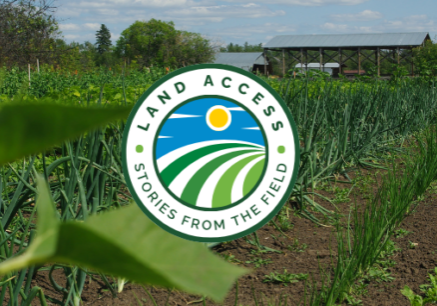Land Access Stories from the Field: Five Haystacks
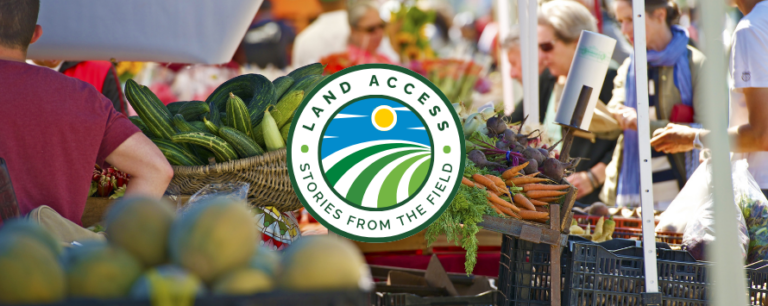
Five Haystacks Farm is a 45 acre farm in Campbellville, Ontario that is home to Little Wolf Farm, Lawoti Farms, and Carabao Fields. Without farming backgrounds themselves, the owners of Five Haystacks decided to share some underused land with small-scale farmers in the GTA. All 3 farmers have individual businesses and sign written contracts yearly with the idea of farming there long-term. This land access arrangement is managed by building slow, trusting relationships, and supporting each other to work towards collective success.
Little Wolf Farm
Mark farms on a ⅓ acre plot to supply produce to his restaurant, Midfield Wine Bar in Toronto. He has 17 years of chef experience in the U.K., New York City, and Toronto, and was surprised to find limited access to fresh and diverse wholesale produce options in Toronto. In 2021, he started growing his own produce at Five Haystacks to fill this gap after meeting the land owners on FarmLink.ca and connecting over community and food-related values. Mark grows hard to source varieties of vegetables like carrots, onions, and cabbages. Since purchasing land in the GTA is out of the question due to high prices, Mark’s goal is to continue farming at Five Haystacks and supply Midfield Wine Bar exclusively with Little Wolf’s produce in an effort to be self-sustaining. Check out Midfield Wine Bar here, where Mark serves dishes with Little Wolf’s produce and occasionally offers direct-sale items via farmstand on the patio.
Lawoti Farms
Surendra farms a ½ acre plot and grows hot peppers for Lawoti Sauce Co. His specialty is Nepalese Dalle cherry peppers, used to make Achar – a traditional Nepalese hot sauce made with his mother’s recipe. Surendra grew up in an agricultural community in Nepal and spent 4-5 years growing food in his backyard in Canada before farming more seriously. He started farming 50 feet of land borrowed from a friend in the Rouge Valley, but quickly expanded at Five Haystacks after connecting with the owners on FarmLink.ca in 2022. There, he developed a good working relationship with the owners and gained support with things like farm open-houses. Despite balancing full-time work and family time, he has plans to expand by growing 35 different vegetable crops in addition to peppers, including south asian vegetables like okra. Learn more about Lawoti Farms here, and find their products at Withrow Park Farmers’ Market and The Underpass Farmers’ Market this season.
Carabao Fields
In 2023, Jien and Steve started Carabao Fields, where they grow over 45 varieties of ecologically grown vegetables including South Asian staples like pac choi, bittermelon, kang kong, chayote, and long beans on a ¼ acre plot. Jien worked in the financial industry for 10 years, but decided to work on a farm in 2022 to learn about growing vegetables and ultimately started her own venture. They discovered an opportunity at Five Haystacks through FarmLink.ca, only a 30 minute commute from their home, and built a relationship with the owners around shared values, gaining support with getting electricity near the plot, using the farm’s location as a farmstand, and having collective access to a shed and parking area. In 2023, they attended farmers markets, had a small CSA and some wholesale orders. For the 2024 season, they will be serving their hometown as vendors at the Georgetown Farmers Market, expanding their CSA locally, and having an online store for farm pick up. They look forward to providing quality produce, and forming meaningful connections with their community.
This land access model is successful because it provides new farmers with opportunities to share tools, knowledge, and capacities while farming on the same land. And, it gives them the freedom to experiment, learn, and grow as new farmers with minimal financial commitment. Challenges include balancing full-time work off-farm, personal life, commuting, and farming. And, signing a rolling year-long lease instead of a longer term lease can be limiting when the time comes to invest in more infrastructure or expand the operation.
This article is part of the series:
Land Access Stories from the Field
Accessing farmland is becoming more and more difficult due to development pressures and skyrocketing land prices. The NFU-O believes that next generation farmers should be nurtured in their quest for land access through systemic support, and are advocating for this at a provincial level. Meanwhile, just as the strongest and most resilient plants prevail under weed pressure and drought, these resilient farmers are springing up across the province by finding alternative ways to access land. Here are some examples of alternative land access methods that next generation farmers across Ontario are exploring.

